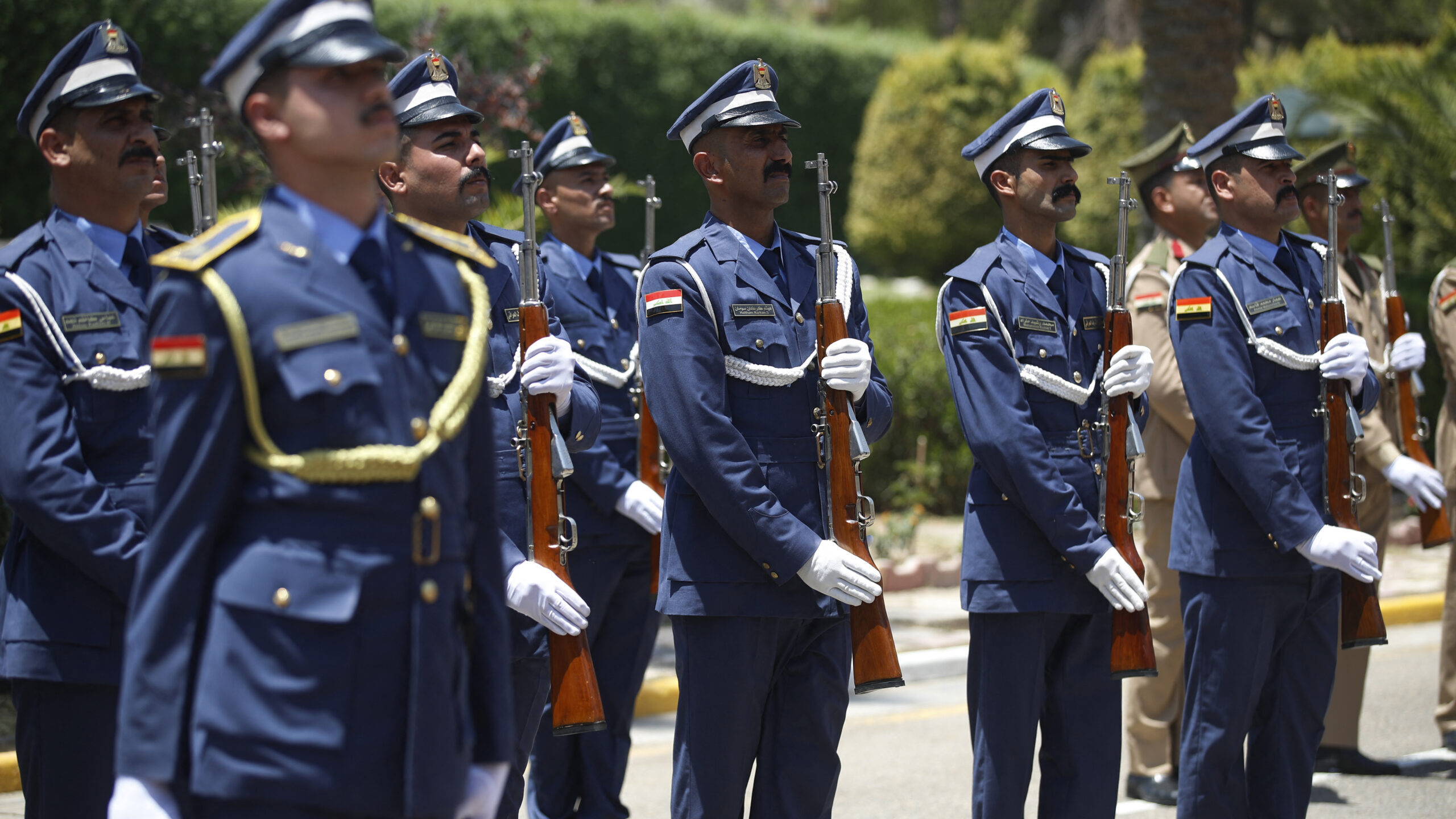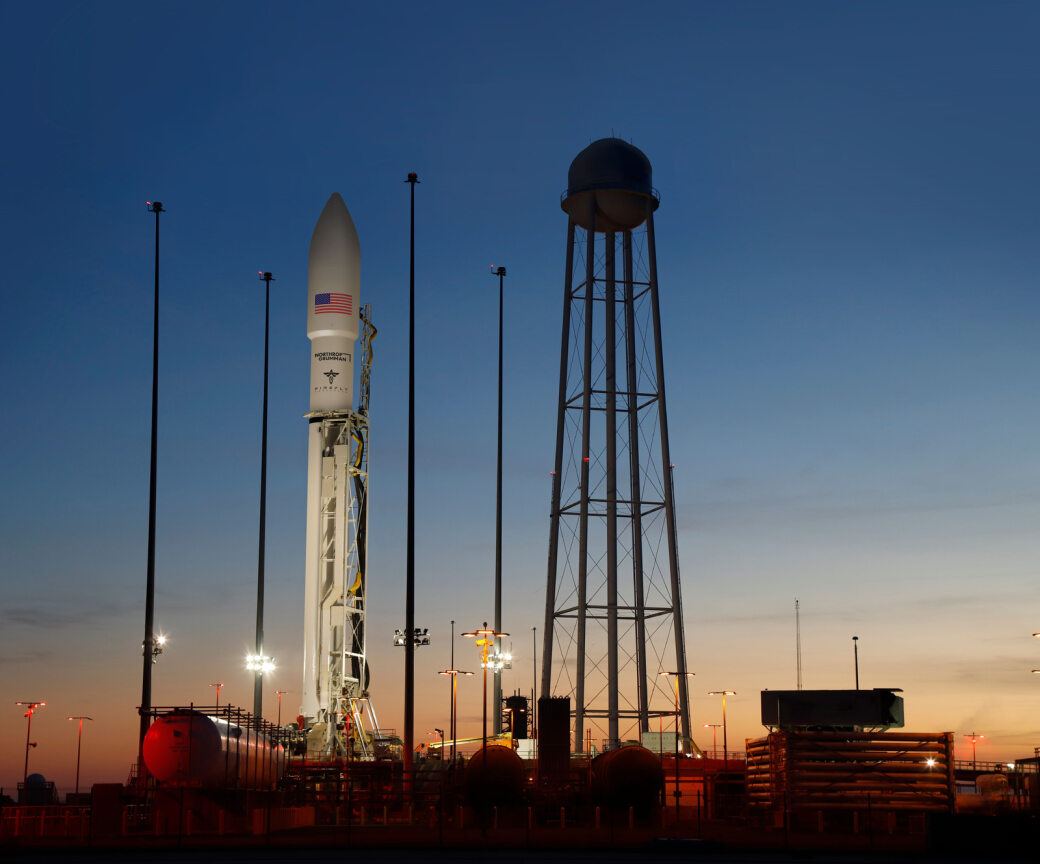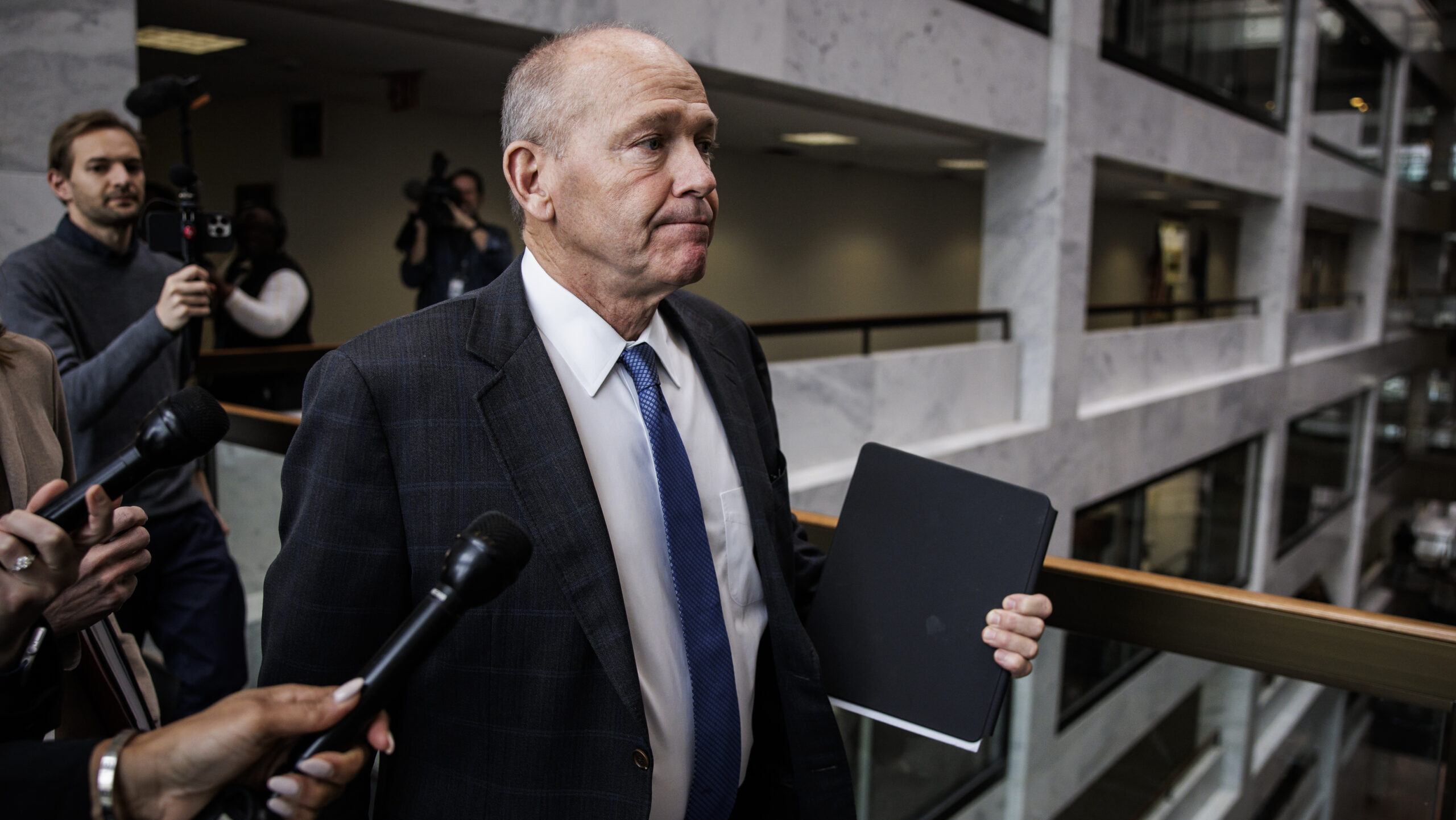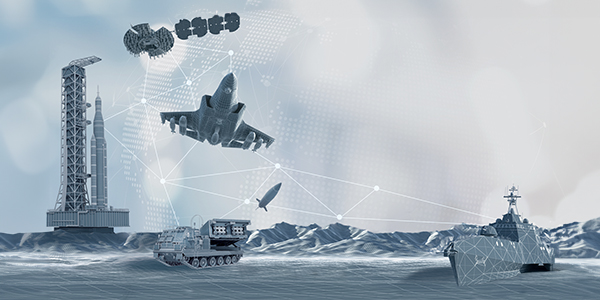
Iraq’s military Honor Guards wait prior to an official ceremony at the Ministry of Defence in Baghdad’s Green Zone on July 18, 2023. (Photo by Ahmad AL-RUBAYE / AFP) (Photo by AHMAD AL-RUBAYE/AFP via Getty Images)
BEIRUT — New fighter jets might not be on their way to Iraq, despite some recent rumblings sparked by local Pakistani news reports, but experts told Breaking Defense that Baghdad is looking to bolster its defense capabilities, focusing instead on land and border security.
This week a Pakistani official pushed back on local reports that claimed Islamabad had finalized a deal with Iraq regarding Chinese-designed and Pakistani-owned JF-17 fighter jets, calling it “false news.” Rather, the official suggested to Breaking Defense it was a misreading of discussions held last year, and “no new progress” has been made since. The Iraqi government did not respond to Breaking Defense’s request for comment.
In January 2022, Iraqi defense minister Juma Inad said in an interview with Al-Arabiya that they were in negotiations with Pakistan to buy JF-17 Thunder fighter jets. Norman Ricklefs, who leads geopolitical consultancy NAMEA Group and was previously an adviser to Iraq’s defense chief, told Breaking Defense the discussions “did not progress past initial discussions.”
RELATED: Turkey, Saudi Arabia ink deal for Baykar Akinci drones as Erdogan swings through Gulf
Fighter jets, after all, aren’t Baghdad’s top priority right now, according to analysts and observers.
“For Iraq’s military… these are prestige items more than a security necessity,” Daniel Byman, senior fellow at the DC-based think tank CSIS, told Breaking Defense. “Money on training, logistics, intelligence, and other less glamorous but essential aspects of a strong military would be the best use of any additional money spent on defense.”
Defense expert and retired Iraqi armed forces Brig. Gen. Adnan Al Kenany said, “Two Iraqi departments determine armaments needs of Iraq, the Iraqi National Intelligence Service and the Military Intelligence, which are responsible for determining the threats for Iraqi lands, borders and security, and thus procuring defense platforms for the armed forces.”
RELATED: US sends F-35s, destroyer to Gulf after Iran-linked ‘alarming events’
During a visit this week to Baghdad by French defense minister Sebastien Lecornu, Iraqi Prime Minister Mohammed Shia al-Sudani did mention an interest in working with French industry in a number of fields, including “in relation to the air force,” according to a government statement, but also discussed broader cooperation on “defense systems.”
France has already had recent business in Iraq. In July 2022, Baghdad contracted French Thales and American Lockheed Martin to supply radar systems for air defense platforms, according to Inad, while launching the construction of a new Air Defense Command Operations Center. Later, Thales revealed that the contract included supplying Iraq with GM403 radar, while the American system, according to Inad, is long range radar type TBS 77.
But Rickelfs said what Iraq needs is “precision guided weapons and infantry fighting vehicles to meet its internal security needs, especially given that ISIS remains a threat and a resurgence is always a possibility.”
In his view, Iraqi defense expert Ahmad Al Sherifi expressed Baghdad’s need for drones for reconnaissance, monitoring and combat purposes.
“The financial allocations in the budget are limited and do not provide sufficient financial resources to develop combat skills or procure weapons capabilities, hence drones are cheaper than other systems and can fill in a gap,” Al Sherifi said.
Byman said that Iraq’s “most pressing priorities pertain to internal defense. It faces a lingering, low-level insurgency linked to the Islamic State and, more broadly, potential unrest from various Iraqi communities. Iraq’s external threats are far lower in terms of overall priorities.”
He said that Iran remains a threat to Iraqi sovereignty, “but the Iranian challenge is political manipulation, subversion, support for militant groups, and assassinations — not an outright invasion. Border security remains an important challenge for Iraq, with Iran being able to smuggle freely as well as the Turkish and Syrian border often being very open,” Byman added.
Iraq airspace recently witnessed a number of incursions by unmanned aircraft, the latest of them in May 2023 when northern Iraq was struck by a Turkish drone. Earlier in April, a convoy, including US personnel, was targeted by a drone strike. In September 2022, an Iranian drone struck northern Iraq targeting Iranian-Kurdish opposition bases.
“While making procurement plans, the Iraqi armed forces should keep the power balance with its neighbors Turkey and Iran, in mind, as both countries are building their weapons arsenals and both have ambitions in Iraqi lands,” Al Kenany said.
More broadly, he added that the country needs to restructure its armed forces to follow other modern armies and be better able to accomplish its missions. For now, fighter jets can wait.












